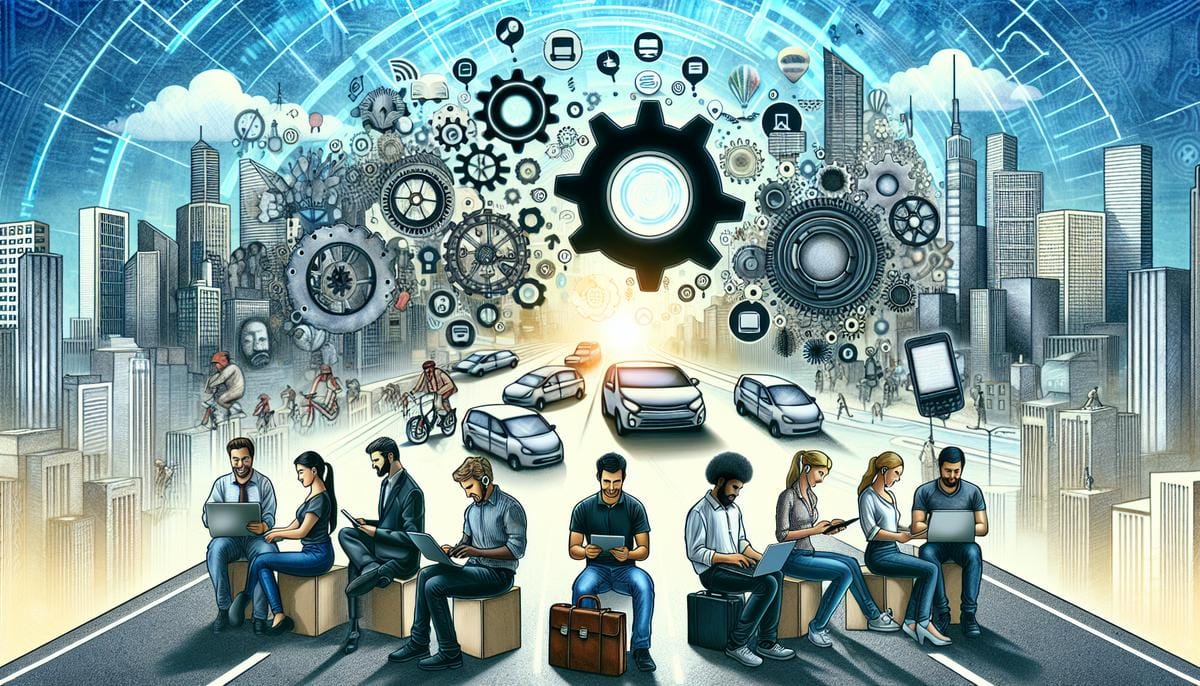The Gig Economy: Tech's Role in Shaping Modern Work

The gig economy is a term that has become increasingly popular in recent years. It refers to the growing trend of workers taking on temporary or freelance jobs, often facilitated by technology platforms. This new way of working is revolutionizing the traditional 9-to-5 job and changing the way we think about employment. But what role has technology played in shaping the gig economy? Let's take a closer look.
The Rise of the Gig Economy
The gig economy has been around for a while, but it has exploded in recent years. According to a study by Upwork and the Freelancers Union, 57 million Americans freelanced in 2019, up from 53 million in 2014. That's more than a third of the U.S. workforce. The gig economy is also a global phenomenon, with countries like the UK, Canada, and Australia experiencing similar growth.
There are several factors driving the rise of the gig economy. One is the desire for flexibility. Many workers, especially millennials, value the ability to choose when and where they work. They also appreciate the variety of work that the gig economy offers. Another factor is the rise of technology platforms that make it easier to find and manage gig work. Companies like Uber, Airbnb, and TaskRabbit have become household names, and they are just a few examples of the many platforms that have emerged in recent years.
Technology's Role in the Gig Economy
Technology has played a critical role in the growth of the gig economy. It has made it easier for workers to find gig work and for companies to find workers. It has also made it easier to manage gig work. With a few clicks, workers can find a gig, accept it, complete it, and get paid. Companies can also easily track the work being done and manage payments.
Technology platforms have also enabled the creation of new types of gig work. For example, Uber and Lyft have created a new category of gig work: ridesharing. Airbnb has created a new category of gig work: short-term rental hosting. And TaskRabbit has created a new category of gig work: task-based work. These platforms have created new opportunities for workers and new ways for companies to access labor.
Another way technology has shaped the gig economy is by making it easier for workers to build a personal brand. In the past, workers were often tied to a single employer and had little control over their career. In the gig economy, workers can work for multiple clients and create a portfolio of work that showcases their skills. This has given workers more control over their careers and made it easier for them to find work that aligns with their interests and skills.
The Future of the Gig Economy
The gig economy is here to stay, and technology will continue to play a critical role in its growth. As technology continues to evolve, we can expect to see more innovation in the gig economy. For example, artificial intelligence (AI) and machine learning could help match workers with gigs more accurately. Blockchain technology could make it easier to manage payments and contracts. And virtual reality (VR) could create new types of gig work, such as virtual event planning.
However, the gig economy also presents challenges. One of the biggest challenges is the lack of benefits and protections that traditional employees enjoy. Gig workers often don't have access to health insurance, retirement plans, or unemployment benefits. This has led to calls for new regulations and policies to protect gig workers. The gig economy also raises questions about the future of work. Will traditional jobs be replaced by gig work? Will workers need to constantly reskill to keep up with changing technology? These are important questions that we will need to address as the gig economy continues to grow.
Conclusion
The gig economy is changing the way we work, and technology is playing a critical role in shaping it. From making it easier to find and manage gig work to creating new types of work, technology has revolutionized the traditional 9-to-5 job. As the gig economy continues to grow, we can expect to see more innovation and new challenges. But one thing is for sure: the gig economy is here to stay, and technology will continue to play a critical role in its future.


